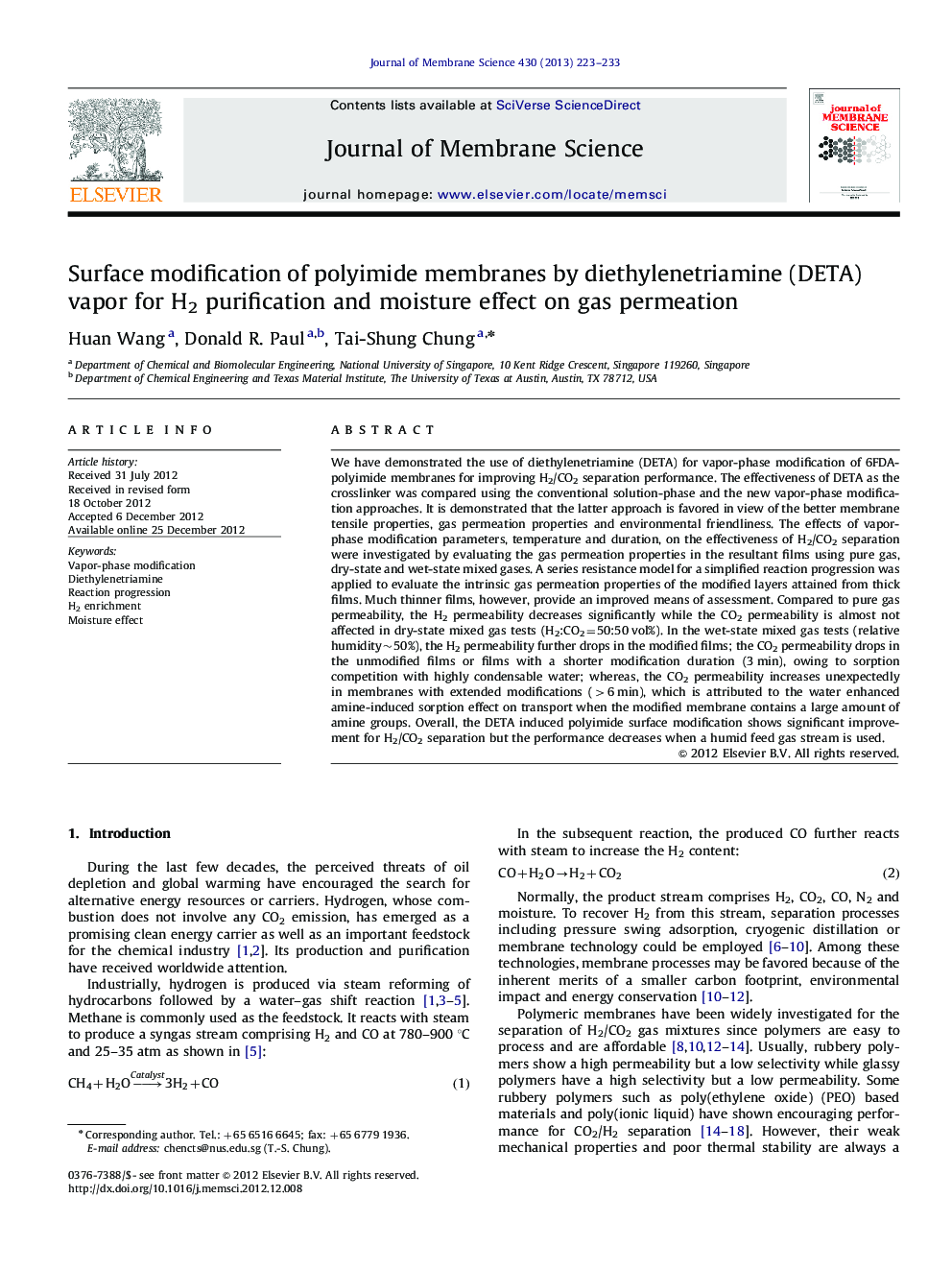| Article ID | Journal | Published Year | Pages | File Type |
|---|---|---|---|---|
| 634516 | Journal of Membrane Science | 2013 | 11 Pages |
We have demonstrated the use of diethylenetriamine (DETA) for vapor-phase modification of 6FDA-polyimide membranes for improving H2/CO2 separation performance. The effectiveness of DETA as the crosslinker was compared using the conventional solution-phase and the new vapor-phase modification approaches. It is demonstrated that the latter approach is favored in view of the better membrane tensile properties, gas permeation properties and environmental friendliness. The effects of vapor-phase modification parameters, temperature and duration, on the effectiveness of H2/CO2 separation were investigated by evaluating the gas permeation properties in the resultant films using pure gas, dry-state and wet-state mixed gases. A series resistance model for a simplified reaction progression was applied to evaluate the intrinsic gas permeation properties of the modified layers attained from thick films. Much thinner films, however, provide an improved means of assessment. Compared to pure gas permeability, the H2 permeability decreases significantly while the CO2 permeability is almost not affected in dry-state mixed gas tests (H2:CO2=50:50 vol%). In the wet-state mixed gas tests (relative humidity∼50%), the H2 permeability further drops in the modified films; the CO2 permeability drops in the unmodified films or films with a shorter modification duration (3 min), owing to sorption competition with highly condensable water; whereas, the CO2 permeability increases unexpectedly in membranes with extended modifications (>6 min), which is attributed to the water enhanced amine-induced sorption effect on transport when the modified membrane contains a large amount of amine groups. Overall, the DETA induced polyimide surface modification shows significant improvement for H2/CO2 separation but the performance decreases when a humid feed gas stream is used.
Graphical abstractFigure optionsDownload full-size imageDownload high-quality image (453 K)Download as PowerPoint slideHighlights► Polyimide films are modified by diethylenetriamine for enhanced H2 purification. ► The vapor-phase modification is favored as compared to the solution-phase approach. ► Reaction progression in the thick film is probed via DEBS analysis by PAS. ► PH2 drops in dry-state and wet-state mixed gas tests. ► PCO2 increases with the wet mixed gas feed attributed to the stronger sorption.
